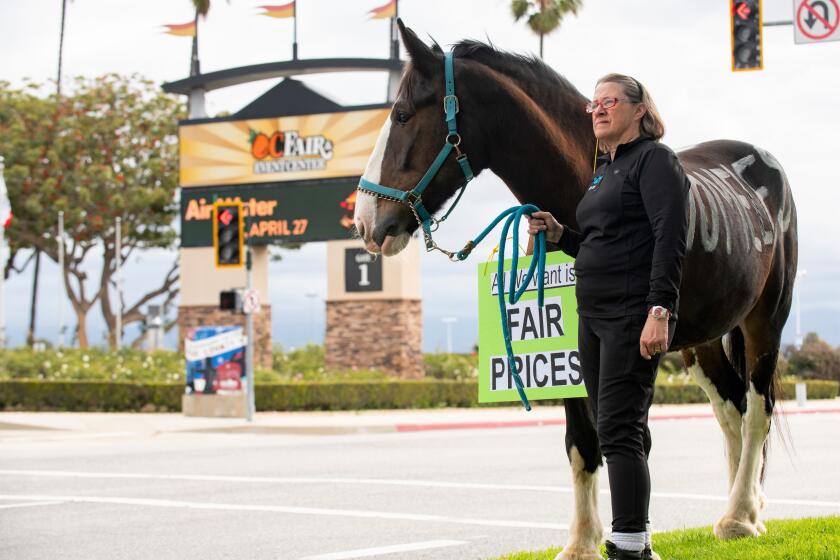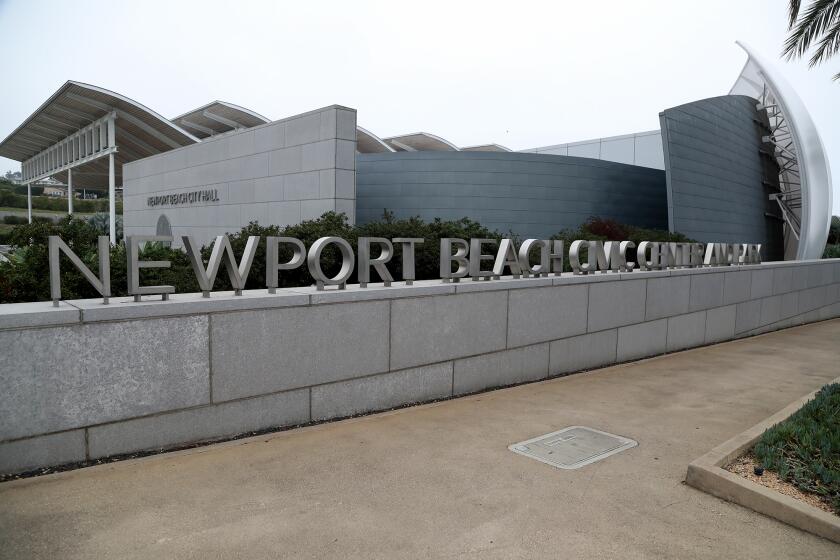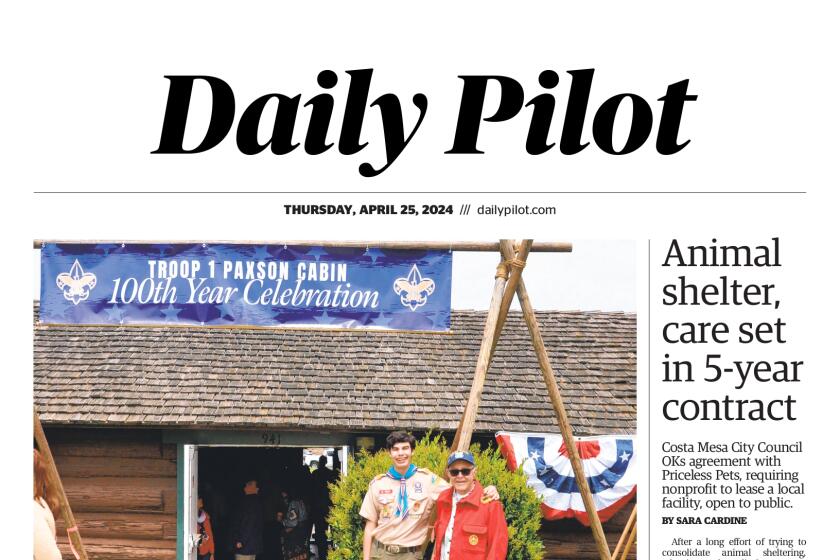Frank talk at Conservancy dinner
City Manager Ken Frank received a cordial welcome Jan. 4 from an audience that included some of his harshest critics.
Frank was the guest speaker at the Laguna Canyon Conservancy’s well-attended first dinner meeting of 2010, essentially presenting a state of the city report.
He was introduced by a contingent of past and present members of the City Council, some of whom are not members of the Frank Fan Club, with a warmhearted tone set by former county Chief of Harbors Beaches and Parks Eric Jessen.
“I don’t know how he did it, but he managed to acquire the Maboubi Fardi property,” Jessen said. “It was a major achievement in a long, illustrious career.”
Jessen’s comments gave Frank a perfect segue into his talk. He began with a brief history of the city’s acquisitions of open space during and just before he began his 30 years at the helm of City Hall.
Frank chose a subject dear to the hearts of the audience.
“I never met Jim Dilley, but the city was already on that track when I first got here,” Frank said.
“The city had just bought the Sycamore Hills property for $5 million. Since then the city has acquired more than 3,000 acres of open space — not parks — open space. The city has spent $35 million for 110 parcels. It is a real achievement.”
He said another land acquisition might soon be announced.
“I can’t go into details, but the something else is cooking,” Frank said. “It is terrible to say, but the economy in the tank is an opportunity to acquire property that two years ago we couldn’t get. “
Property owners now are finding it financially expedient to donate parcels and take the tax benefits. But opportunities are getting scarcer.
South Laguna still has some treasures that the city would love acquire, Frank said.
His next subject was not quite as much fun — the budget, although there is a silver lining.
“We are in better shape than most cities,” Frank said.
Frank said there would be at least five layoffs this year and more in the next two years, but that the public will not notice it. What the public will notice, he said, are capital improvements.
“When you see a new corporation yard, a new senior center, city streets [excluding Caltrans projects] repaved, a new lifeguard headquarters, a new animal shelter — all from Montage tax revenue, it is because of a council decision to improve infrastructure,” Frank said. “The revenue is down to $3 million, but that is still pretty damn good.”
Frank then invited the audience to ask questions.
Asked about the “Ben Brown” project in Aliso Canyon, Frank said the environmental impact report is in limbo and he doesn’t know if it will be completed.
“Montage has a bunch of sites, and all of them have been shut done,” Frank said. “The eBay owner [Montage’s primary investor] decided he wanted to hang onto his money.”
The sites include what Frank described as the premier location in Cabo San Lucas and one in Hawaii that the city manager thinks will take priority over the Aliso Creek project, when and if construction is resumed.
Barbara Painter asked when Glenneyre Street at Calliope Street in front of the Bluebird Life Station Renovation project would at last be fully open to traffic.
“That is the project from hell,” Frank said. “We have been working on it forever. But the contractor said the street would be open in five or six days.”
The intersection is now open.
Frank didn’t sound convinced. And at the City Council meeting the next night, Water Quality Director David Shissler said it is expected to be open Wednesday.
Asked what is happening with the Caltrans repaving of Coast Highway, Frank said, “Oh God. I will take responsibility for the [Bluebird] pump station, but not for Coast Highway.”
He said the project is not up to city standards and at least some of it should be redone.
Max Brown wanted to know if the city could ban the contractor, All American Asphalt Co., from working in the city.
Frank said no. Low bidders get the jobs.
Asked if the city had any recourse, Frank said, “Contact the governor. We’ve complained. I can’t believe they will leave it the way it is.”
Frank was also questioned about the left-hand turn pockets on the highway, which were designed to prevent stacked traffic at intersections unmarked for left turns. Longer lanes and more pockets might have been better he was told, particularly at Oak Street.
“We looked at that, but we would have lost parking,” Frank said.
The California Coastal Commission gets testy about that.
Frank was also asked about the status of a planner to assist the Design Review Board. One will be hired, he said.
Bill Roley asked about the status of the Aliso Creek rehabilitation project.
“The county and the Army Corps of Engineers haves some money for the restoration,” Frank said. “It is a slow process but I hope to see some positive results.”
The issue of mansionization, a hot button for many conservancy members, was raised.
“It has been an election issue for 30 years,” Frank said.
The city has instituted more strict development standards, including height restrictions and is trying to reduce grading, but land values in Laguna are high and people with money want to build homes that reflect their investment, Frank said.
“A couple of cottages were torn down behind the Penguin and are selling for $15 million each,” Frank said.
Lastly, Frank was asked by Gene Felder to address the city’s position on the pensions paid to retired firefighters, police officers and lifeguards.
Benefits were substantially increased. On top of which, the city is required by the state to pay benefits retroactive to the date of employment under the new formula, which has resulted in a $10-million debt for the back payments to the state, which is also charging 7.75% interest.
The council is wrestling with options Frank presented in December to pay off the interest at a significant savings to the city.
All the latest on Orange County from Orange County.
Get our free TimesOC newsletter.
You may occasionally receive promotional content from the Daily Pilot.



